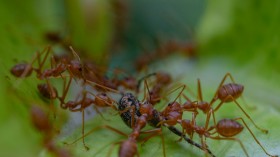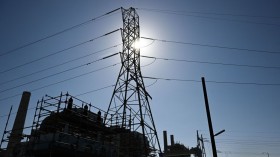China’s Shenzhou-10 (Divine Craft) spacecraft blasted off Tuesday morning from the Gobi desert with three astronauts on board for a 15-day mission representing the latest step toward the development of the nation’s own space station.
The spacecraft will dock with the Taingong 1 (Heavenly Palace), which is currently acting as a trial space laboratory. There the astronauts will run a series of tests as well as conduct a lecture to a group of students back on Earth.
Among the astronauts’ well-wishers was President Xi Jinping, who applauded the group and the mission.
“You are the pride of the Chinese people, and this mission is both glorious and sacred,” he said, according to The Guardian.
The mission represents China’s fifth manned mission since 2003 and a very different story from Mao Zedong’s complaint decades ago that the country was not even capable of launching a potato into space.
Furthermore, unlike the previous nine Shenzhou spacecraft, the one currently in orbit is “considered an applicable shuttle system for transporting astronauts and supplies to orbiting modules.”
"It is like developing a new type of car. You have to try it on roads of different conditions. Now trials are over and the car can be put into formal operation," Zhou Jianping, chief engineer of China's manned space program, said in an article published by Xinhua, the official press agency of the nation’s government.
Meanwhile, the upgraded Long March-2F carrier rocket used in the launch is technically the same as the one used with the Shenzhou-9 spacecraft, which Jing Muchun, chief designer of the rocket, told Xinhua is a sign that “China’s rocket technology is becoming mature.”
However, not everyone saw the successful launch as a triumph: as The Guardian further reports, at least one user of the nation’s microblogging website Sina Weibo expressed exasperation at the event.
“Why don’t they spend this money solving China’s real problems instead of wasting it like this?” the person asked.
Xinhua, on the other hand, said that “ordinary Chinese, especially science enthusiasts, are excited about the new mission.”
“It is a festival for space fans,” Zhao Yang, a researcher with the China Science and Technology Museum, said.
Ultimately, should the goal of maintaining a permanent space station by 2020 occur, astronaut Wang Yaping said it could mean an extension of the country itself.
“If the country has its own space station, Chinese astronauts, who are Party members, might set up a Party branch up there,” he said in reference to the communist government.
© 2024 NatureWorldNews.com All rights reserved. Do not reproduce without permission.

![Extreme Heat Wave in Africa’s Sahel Region That Killed 100 People Linked to Climate Change [Study]](https://1471793142.rsc.cdn77.org/data/thumbs/full/70226/280/157/50/40/extreme-heat-wave-in-africa-s-sahel-region-that-killed-100-people-linked-to-climate-change-study.jpg)



